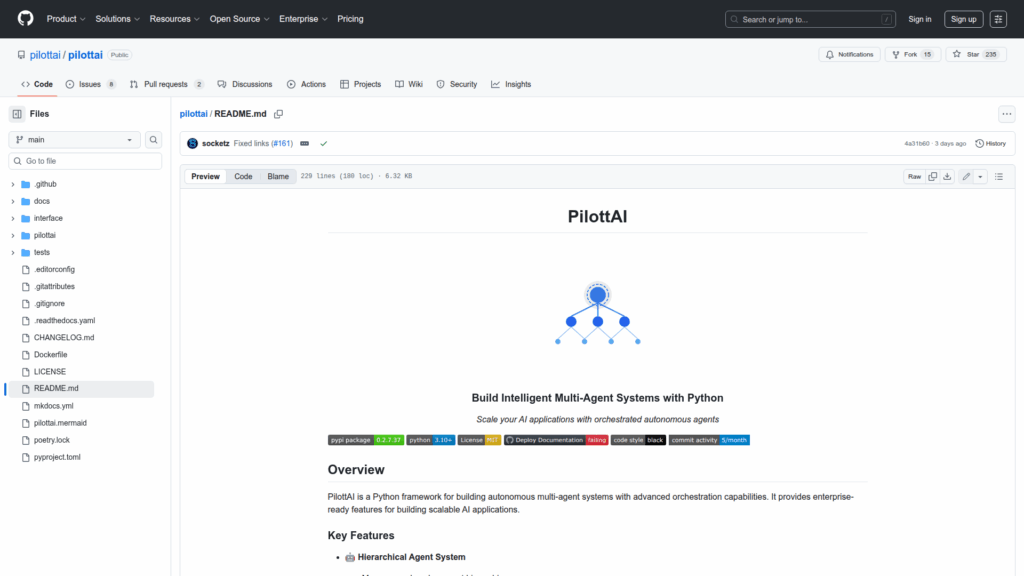pilottai
Basic Information
PilottAI is a Python framework designed to build, orchestrate, and run autonomous multi-agent systems for scalable AI applications. It provides a hierarchical agent model with manager and worker roles, intelligent job routing, context-aware processing, and specialized agent types for common tasks. The project targets production usage by offering asynchronous processing, dynamic scaling, load balancing, fault tolerance, logging, and advanced memory capabilities such as semantic storage and job history tracking. The README includes a quick start showing how to configure an LLM, create agents, start the system, add agents, and execute jobs. Example specialized agent templates cover document processing, customer service, email handling, marketing, research analysis, sales, social media, and web search. The repo includes a project structure for core components, agents, memory, orchestration, tools, and utilities and is installable via pip.








